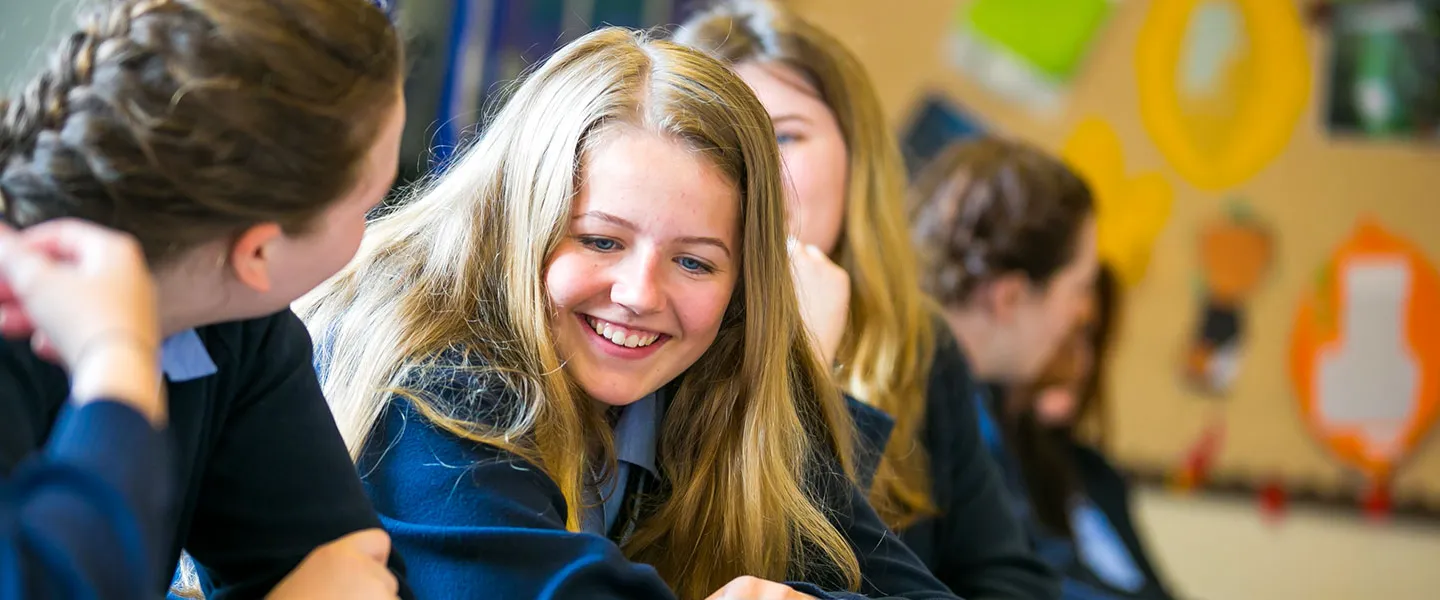Prepping Students for a Physical Education GCSE in Cheshire
Physical fitness helps keep people in top shape physically and mentally. Studying physical education provides key insights into your general well-being while promoting good mental health and helping to relieve stress. The Queen’s School includes physical education as part of our required curriculum to encourage enjoyment and satisfaction through physical activity. Students are motivated to exercise regularly, fostering a lifetime of healthy habits. Years 7-9 are introduced to gymnastics, hockey, lacrosse, rugby, badminton, tennis, and more to develop a well-rounded interest in sports. By the time students enter Years 12 and 13, they follow the Quest programme, participating in more competitive and leisure-based activities such as climbing, rowing, spinning, ice skating, yoga, or Pilates. Learn why pursuing a physical education GCSE at our Cheshire-area institute is worthwhile for many of our students.
Why Is Studying Physical Education Important in School?
Physical education (PE) studies physical health and movement through various activities such as sports, weight training, and dance. It’s about more than just promoting athletics and competition. Students who study physical education develop more self-confidence and social skills that can carry over into other aspects of life. Studying PE overlaps with other academic subjects, including biology, chemistry, and physics, because it’s related to learning more about the human body and how it responds to exercise and external forces. Learning more about your physical health and well-being is essential at any age. However, instilling healthy exercise habits in young people often leads to a lifelong interest in physical activity. Physical education students learn to work together to achieve goals and improve performance.
What Careers Benefit From Excelling in Physical Education?
While physical education is a useful subject to study if you plan to pursue a sports-related career, it can pave the way for many exciting career paths. Having your physical education GCSE or A-level will serve you well if you plan to study medicine, sports science, or occupational therapy at the university level. Physical education teaches many soft skills that employers value, including communication, teamwork, analytical thinking, and problem-solving. Popular careers with a physical education connection include:
- Professional athletes
- Sports coaches
- Physiotherapists
- Personal trainers
- Chiropractors
- Sports massage therapists
- Diet and fitness instructors
- Physical education teachers
- Sports medicine specialists
- Swimming instructors
- Lifeguards
- Yoga or Pilates teachers
- Dance instructors
- Sports commentators
- Outdoor activities instructors
- Sports and exercise psychologists
- Performance sports scientists
Popular Health & Fitness Social Influencers to Follow
If you value health and fitness, there are plenty of popular social influencers to follow for healthy recipes, quick workout ideas, and other useful information. Consider following one of these today:
- Lucy Davis (co-founder of the My Coach School app)
- Chessie King (empowers women of all shapes and sizes)
- Lucy Mecklenburgh (owner & CEO of one of the UK’s leading fitness platforms)
- Gabby Allen (personal trainer and former finalist on Love Island)
- Gemma Atkinson (author of The Ultimate Body Plan)
- Petros (London-based fitness influencer who loves the outdoors)
- James Haskell (former rugby player focused on health, fitness, and nutrition)
- Joe Wicks (The Body Coach with 15-minute meals and a 90-day plan)
Experts Weigh in on How to Prepare for Your PE GCSE
Preparing for your physical education (PE) GCSE exam can be just as daunting as any other school subject. You’ll likely be asked to write a paper on the human body and movement in physical activity, followed by a paper on socio-cultural influences and well-being in physical activity and sport. There’s also a non-exam assessment involving your performance in a team activity, individual activity, and either an additional team or individual activity. Here are some tips to help you get ready:
- An exam about the human body and movement in physical activity requires you to test your knowledge of applied anatomy, physiology, movement analysis, and physical training. Students should study the musculoskeletal system, cardio-respiratory system, anaerobic vs. aerobic exercises, the short- and long-term effects of exercise, the relationship between health and fitness and the role exercise plays in both, and how fitness is measured and improved.
- An exam about the socio-cultural influences and well-being in physical activity requires you to test your knowledge of sports psychology, health, fitness, well-being, and socio-cultural influences. Topics covered may include the use of goal setting and how it improves or optimises performance, information processing, guidance and feedback on performance, the mental preparation that goes into performance, engagement patterns of different social groups in physical activities, the commercialisation of sports, sports ethics, the consequences of a sedentary lifestyle, and information related to energy use, diet, nutrition, and hydration.
- For your non-exam assessment, practise progressive drills in various activities you’re likely to be assessed in, either individually or on a team.
- Review past papers for inspiration to help you ace the written parts of your PE GCSE exam.
Physical Education (PE) GCSE Past Papers:
- GCSE PE Past Paper - AQA 8582 - The human body and movement in physical activity and sport
- GCSE PE Past Paper - AQA 8582 - Socio-cultural influences and wellbeing in physical activity and sport
Learn More About The Queen’s School’s Fitness for All Programme
The Queen’s School cares about the health and well-being of our pupils. Contact us to learn more about our innovative Fitness for All programme or to arrange a tour to see what daily student life is like. Our independent learning institute is open to girls aged 4-18. You’ll find our alums include strong women in every field, including physical education. We would love to discuss the benefits of a girls’ education with you in greater detail. You may also register your daughter online for our Entrance Assessments.
